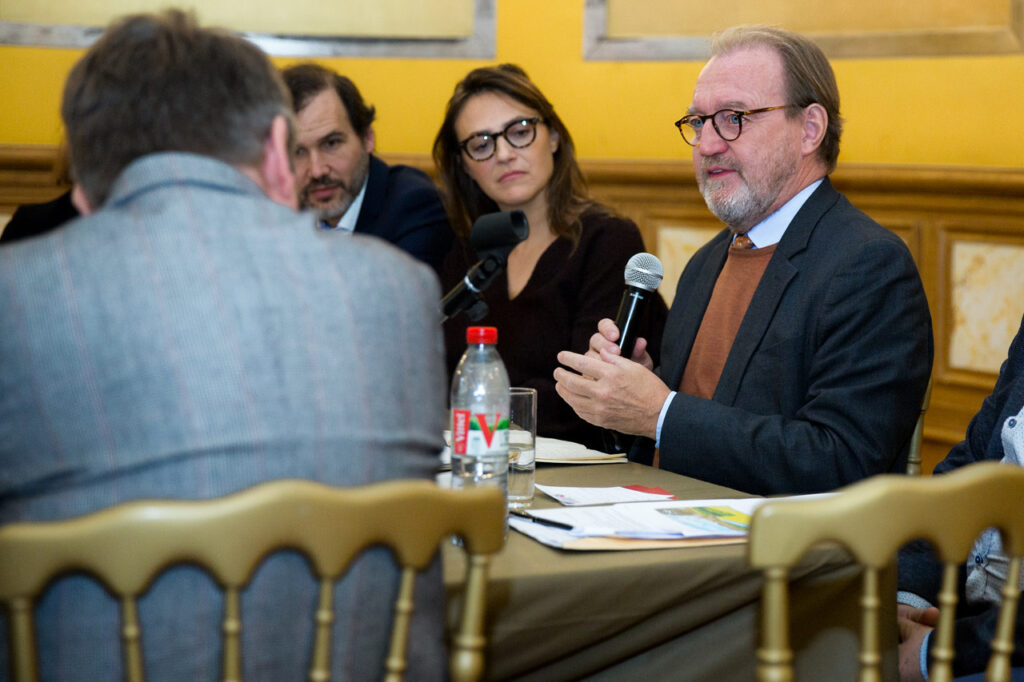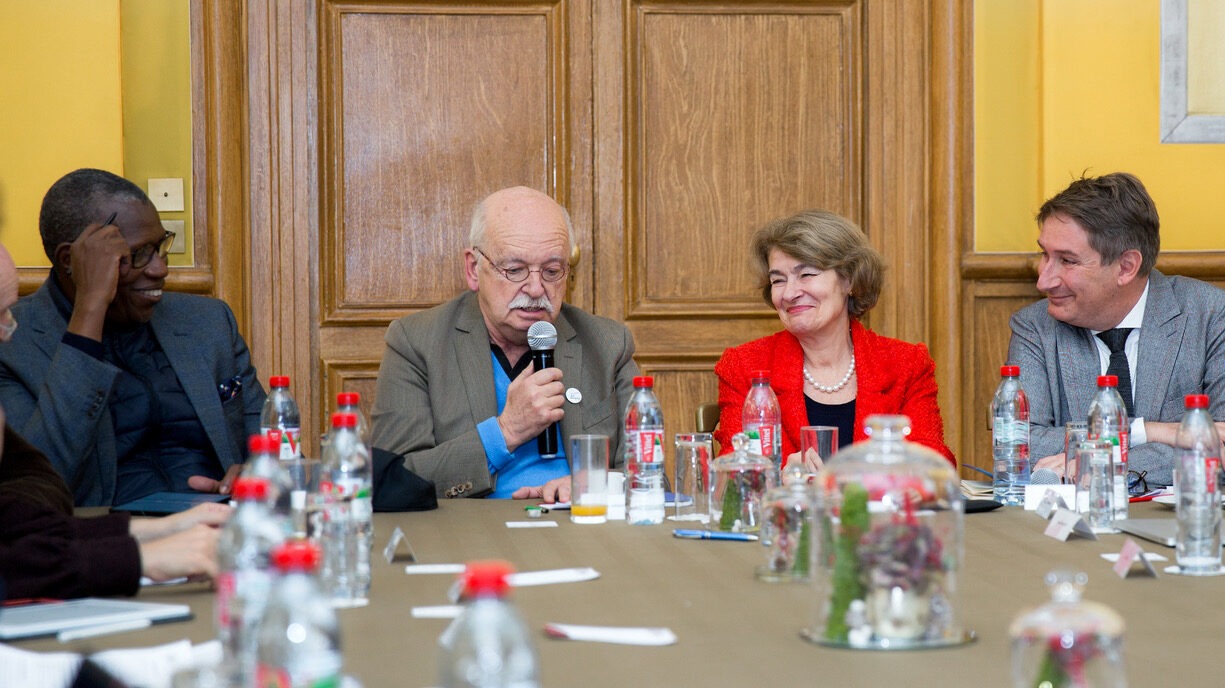Since the year 2000, the share of conflicts over transboundary freshwater resources has been on the rise. Simultaneously, the rate of institutionalising cooperation, i.e. treaties and river basin organisations, has been declining, which the UN processes exemplify.
Fortunately, ideas, tools, and initiatives developed by practitioners and thinkers from the field are plentiful; exchange networks of water practitioners are deepening. As a result, the potential to expand and disseminate current innovative approaches is considerable, as The Bridge Tank
– researched and documented during field visits over the last two years, followed by
– an engagement tour across Europe in June 2022 to promote a renewed practice of hydro-diplomacy.
Indeed, despite alarming trends and media fixation on notorious cases, less documented but lasting success stories do exist, with resilient institutional innovations and good practices in co-management of transboundary waters sustained across the globe, as inspiring cases from Africa, Central Asia, or Europe show. They all have innovative structures to display, either in management, scale, coordinated care of cross-sectoral objectives, tools in common, or cooperative approaches to natural resources. Backed with high local willingness among water practitioners, these innovative features have in return fostered political will.
We argue that this wealth of experiences allows for new pathways to be conceived on the front of hydro-diplomacy itself. Rethinking hydro-diplomacy and its practice assumes multi-stakeholder approaches involving a wider range of actors and the creation, development, and enhancement of tools and practices, e.g. river basin organisations, shared infrastructures, or shared data, research and incubation programmes.
Recognising both the existing gaps in the present understanding and practice of hydro-diplomacy and its considerable potential, The Bridge Tank:
– framed a policy brief, which called for a renewed and enlarged practice of hydro-diplomacy;
– convened a closed-door high-level panel on hydro-diplomacy in Paris, on December 6th, 2022, to put these ideas and hypotheses to the test. This event gathered field experts and development actors familiar with the challenges on the ground, academics and legal experts thinking out institutional tools and legal frameworks, and political decision makers which have worked to ensure a sustainable management of water resources.
These exchanges across practices and geographies created a de facto platform of dialogue on a broadened hydro-diplomacy transcending borders, backed by the range, replicability, and limitations of existing tools and practices. These discussions confirmed the necessity to root these existing tools and practices in this renewed understanding of hydro-diplomacy and work towards an appeased management of water resources, serving as a base for “river basins peace”.
In order to build on the momentum created during this first dialogue, The Bridge Tank is proud to announce the launch of the World Water for Peace Conference.
The World Water for Peace Conference aims to question and enrich the premises of hydro-diplomacy and of the management of transnational rivers,
1) away from a defensive hydro-diplomacy assuming rivalry over access to water resources between users, to a positive hydro-diplomacy, based on shared tools and forums;
2) away from a hydro-diplomacy practised mostly by diplomats toward a holistic one encompassing the plurality of actors.
We believe this paradigm shift through tools and practices will allow to move away from water wars to river basin peace, in short to move away from water wars to water for peace.
The World Water for Peace Conference’s ambition is to seek out innovative ideas and concrete solutions on three great questions:
- The politics and practices of transboundary water peace
- Innovative legal and institutional tools of inclusive cooperation for hydro-diplomacy
- River science, technical innovation and entrepreneurship incubation
The World Water for Peace Conference shall provide a valuable contribution to the practice of hydro-diplomacy by mobilising all stakeholders involved in or impacted by water and its management, from spring heads to deltas, across borders and social and economic sectors:
- Political decision makers
- Hydro-diplomacy thinkers and system developers
- Water practitioners and water users across economic sectors
- Scientists and incubators
The voices of transboundary water peace
We now stand at a crossroads where “water will either be a vector of peace and prosperity for all or a weapon like energy is now becoming.” This important choice ahead was described by Hakima El Haite, Board Member of The Bridge Tank and former UNFCCC Champion for climate, during the high-level panel discussion on December 6th. “Water and development are two sides of the same coin, which is the coin of peace,” Ms El Haite went on to say.
“Water will either become a vector of peace and prosperity for all or a weapon like energy is now becoming.”
Hakima El Haite, Board Member of The Bridge Tank and former UNFCCC Champion for climate
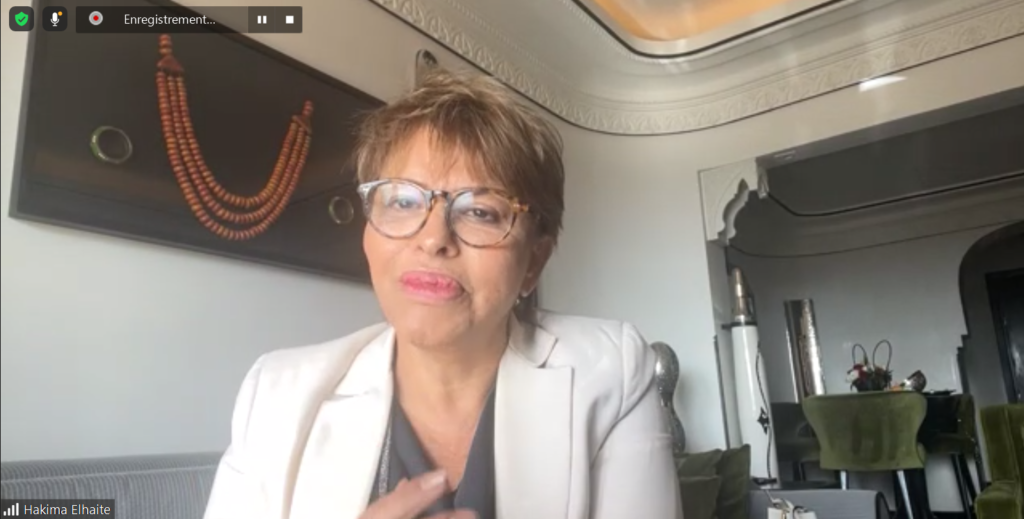
The urgency of the situation was also underlined by Erik Orsenna, Chairman of the Initiative for the Future of Great Rivers (IAGF) and Member of the Académie Française, in his opening remarks to the panel. “If we do not change the mechanisms of war into tools of peace, we are doomed,” Mr Orsenna said, calling for water to be turned into a tool for peace, despite, or precisely because of its close proximity to future threats.
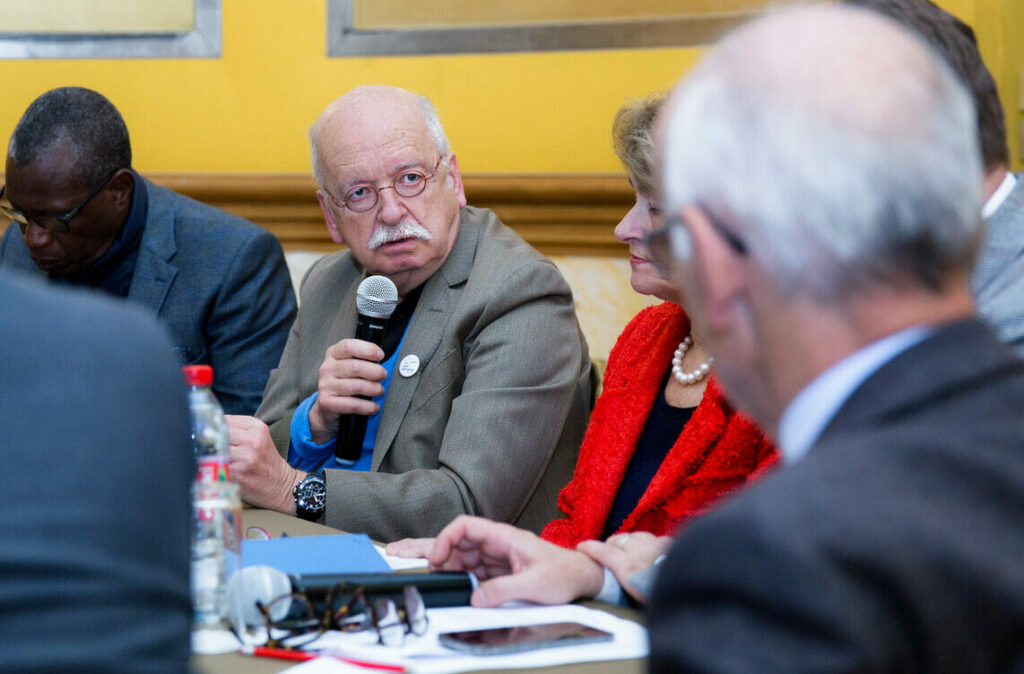
“If we do not change the mechanisms of war into tools of peace, we are doomed.”
Erik Orsenna, Chairman of the Initiative for the Future of Great Rivers (IAGF) and Member of the Académie Française
This paradigm shift is arguably no easy feat. Hamed Semega, Board Member of The Bridge Tank and former High-Commissioner of the Senegal River Basin Development Authority (OMVS), turned to the UNESCO preamble for guidance: “since wars begin in the minds of men, it is in the minds of men that the defences of peace must be constructed.”
Hydro-diplomacy should thus be seen as a source of hope, for which “political will combined with necessity can really transform what is a conflictual issue into building stability and peace,” Mr Semega stressed during the conference in Paris. The basic foundation for water cooperation is knowledge; common knowledge of the river, shared information, and science are key, so Mr Semega.
“Political will combined with necessity can really transform what is a conflictual issue into building stability and peace.”
Hamed Semega, Board Member of The Bridge Tank and former High-Commissioner of the Senegal River Basin Development Authority (OMVS)
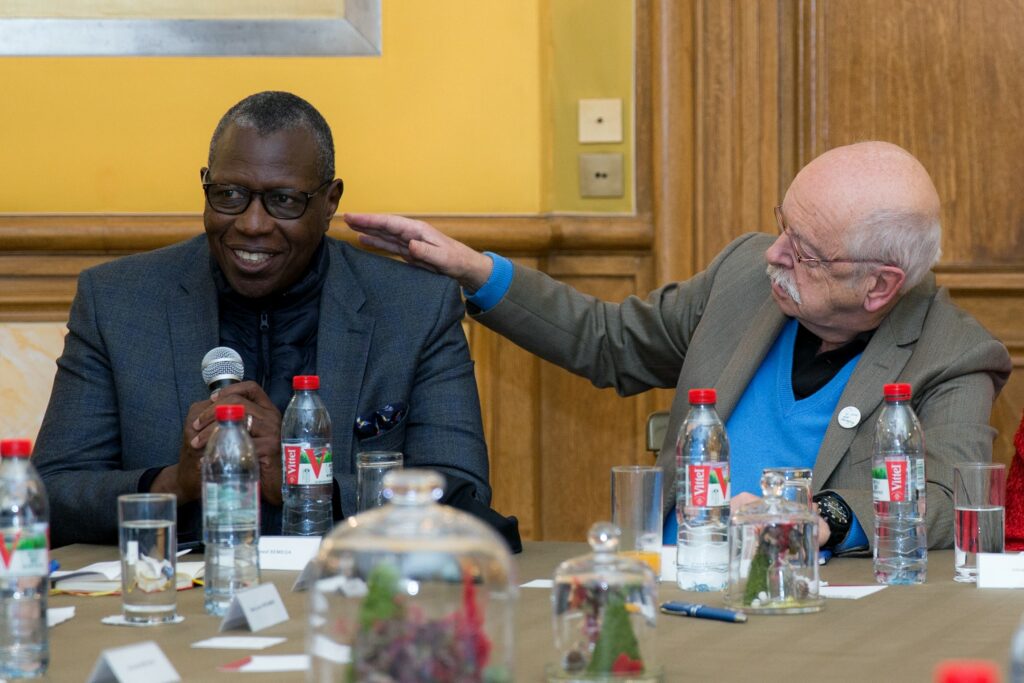
However, “we cannot achieve one goal without looking at the others.” This acknowledgement of water as an important component of the UN Sustainable Development Goals and the assessment of its interconnectedness with other issues was provided to the panel by Irina Bokova, Co-chair of the Global Commission on Science Missions for Sustainability of the International Science Council (ISC) and former Director General of UNESCO.
Ms Bokova underlined the importance of approaching water from a wider point of view, as a human right and a societal question. This wider view, outside of the water silo, requires shared approaches due to water’s huge impact on food security, energy security, gender equality, social inclusion, on the climate, and on the economy.
Ms Bokova pointed to the need to mobilize all different sectors, to involve scientists, innovation, and technology, and to create platforms and institutions in order to establish concrete solutions.
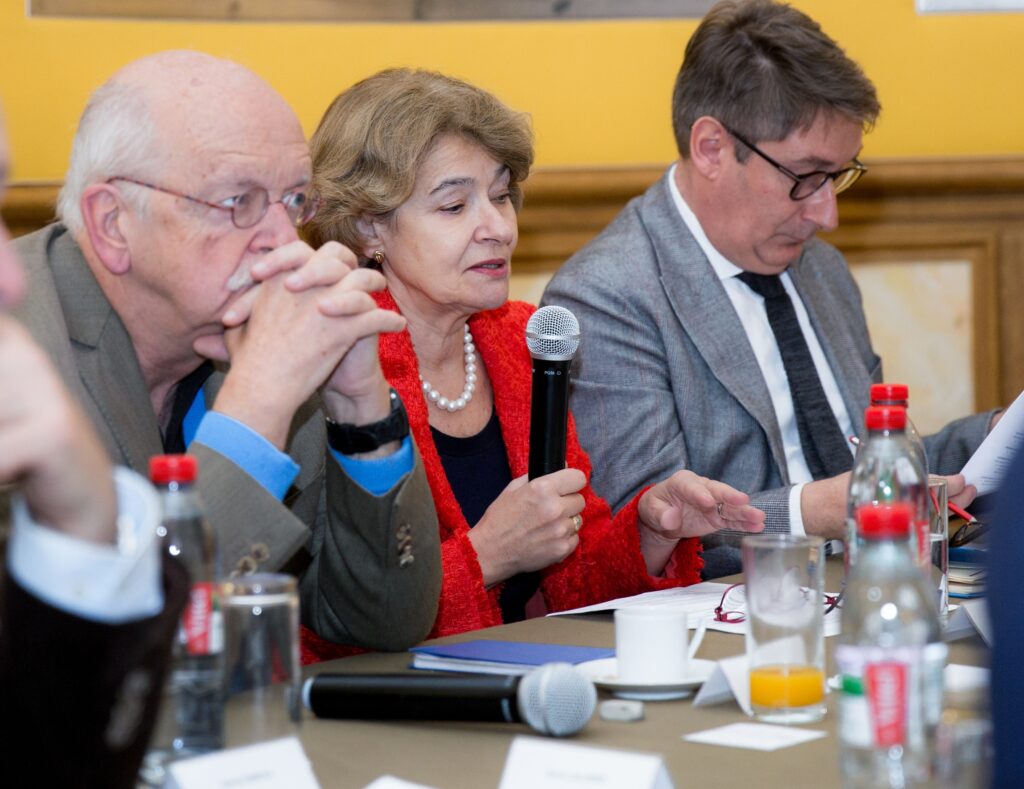
“Agenda 2030 is universal and interdependent, we cannot achieve one goal without looking at the others.”
Irina Bokova, Co-chair of the Global Commission on Science Missions for Sustainability of the International Science Council (ISC) and former Director General of UNESCO.
How to best approach water and the management of the resource was also addressed by Claus Sorensen, Former Director General of the European Commission’s Humanitarian Aid and Civil Protection Department (ECHO).
Mr Sorensen highlighted that both community action, at the bottom, and support from those who set the framework, at the top, were needed. “If we can link the bottom with the top, then I think we are unto something very important,” he added.
“We need community action from the bottom and support from those that set the framework. If we can link the bottom with the top, then I think we are unto something very important.”
Claus Sorensen, Former Director General, European Commission’s Humanitarian Aid and Civil Protection Department (ECHO)
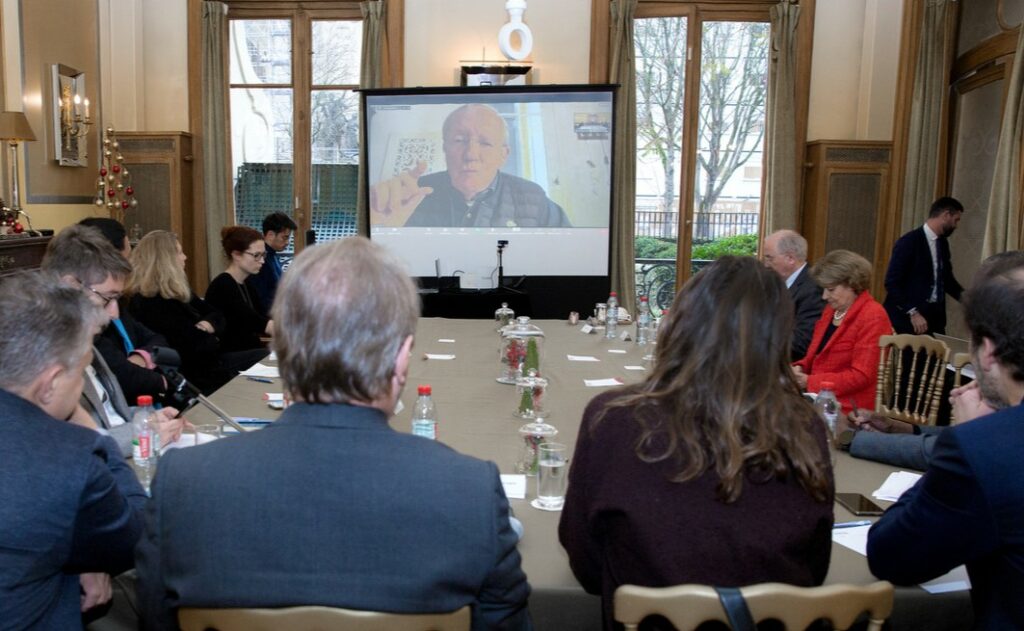
The existing disconnect between the different stakeholders was pointed out by Runa Khan, Founder & Executive Director, Friendship NGO, Bangladesh, who noted that while solidarity of thought existed, there was still a considerable lack of “solidarity of action between between the different stakeholders, from scientists to activists, to people on the ground, to decision makers.”
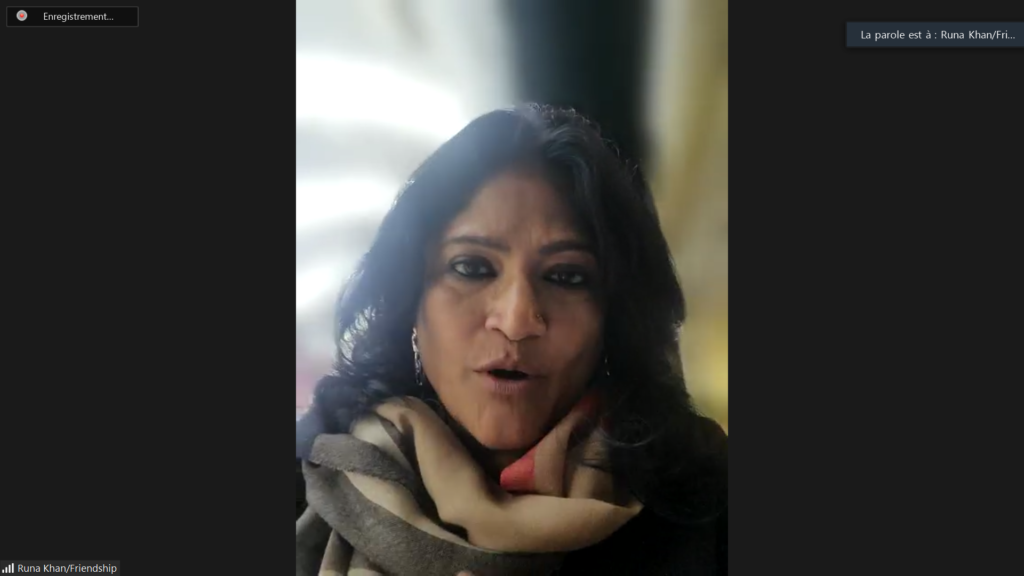
“We still do not have enough solidarity of action between between the different stakeholders, from scientists to activists, to people on the ground, to decision makers.”
Runa Khan, Founder & Executive Director, Friendship NGO, Bangladesh
In an address to the December 6th panel, Minister Sidi Toure, Minister of Animal Resources and Fisheries, Côte d’Ivoire, presented possible actions from a policy makers’ perspective, recognising the need to adopt innovative policies, strategies and programs for better protection, safeguarding and management of water resources.
According to Minister Toure, the optimal use of water resources in Africa must be based on 2 essential levers:
- The development of infrastructures, in particular hydraulic infrastructures to combat food insecurity (livestock, agricultural resources, and people)
- The establishment of appropriate institutional arrangements, which is decisive in the effectiveness of resource protection and equity in its allocation to the various actors.
“Taking into account the plurality of actors and their visions gives an original tone to policies. On the international level, dynamics are already at work. At the local level, the adaptation of techniques and resources are the preferred avenues, particularly in the case of community groups and associations,” Minister Toure noted.
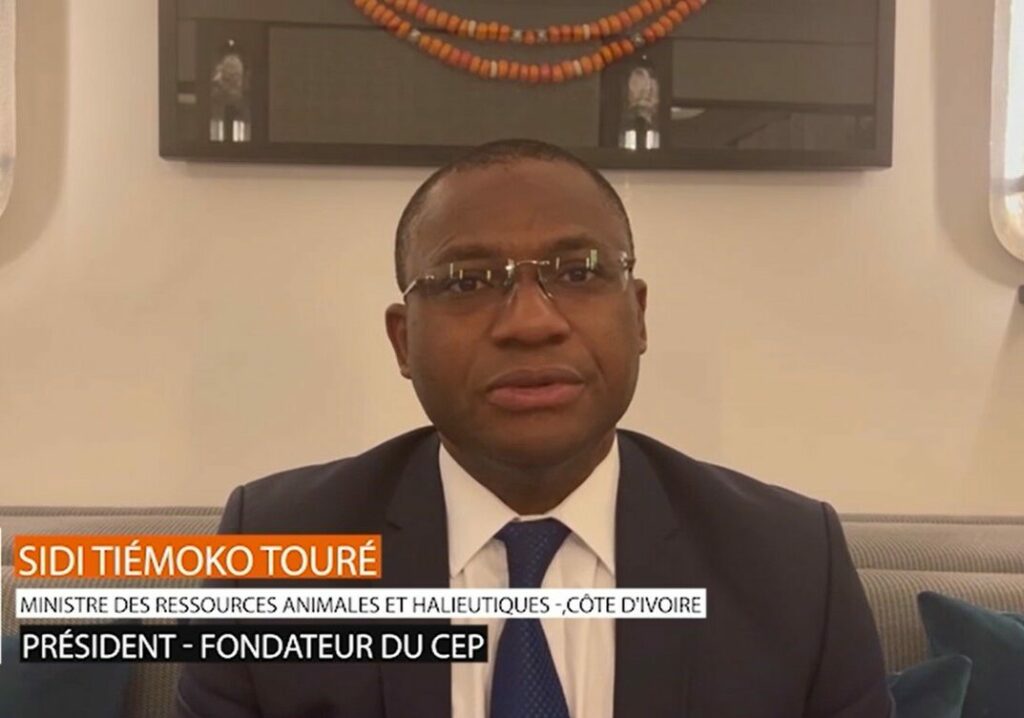
“Africa is very rich in water. The optimal use of this resource must be based on 2 essential levers:
1. The development of infrastructures, in particular hydraulic infrastructures to combat food insecurity
2. The establishment of appropriate institutional arrangements, which is decisive in the effectiveness of resource protection and equity in its allocation to the various actors.”
Sidi Toure, Minister, Ministry of Animal Resources and Fisheries, Côte d’Ivoire
Minister Diaka Sidibe, Minister of Higher Education, Scientific Research and Innovation, Guinea, used her contribution to the panel to highlight existing areas of action and share her testimony on progressive water policies in Guinea.
In order to preserve Guinea’s water sources, in particular the Fouta Djallon, which is commonly referred to as the “Water Tower of West Africa,” Minister Sidibe stressed what she considered to be crucial points of action:
- the need for more qualitative and quantitative data on water resources, in order to appropriately adapt the planning and sustainable management of these resources
- develop technologies to process this data, supercomputers for forecasting and optimisation and spatio-temporal knowledge
- develop territorial diagnoses with universities and research centers.
“Failure to act today to safeguard the Fouta Djallon Highlands threatens water security for our children and future generations,” Minister Sidibe concluded.
“To preserve sources of water, it is crucial to have more qualitative and quantitative data on water resources, in order to appropriately adapt the planning and sustainable management of these resources.”
Diaka Sidibe, Minister of Higher Education, Scientific Research and Innovation, Guinea
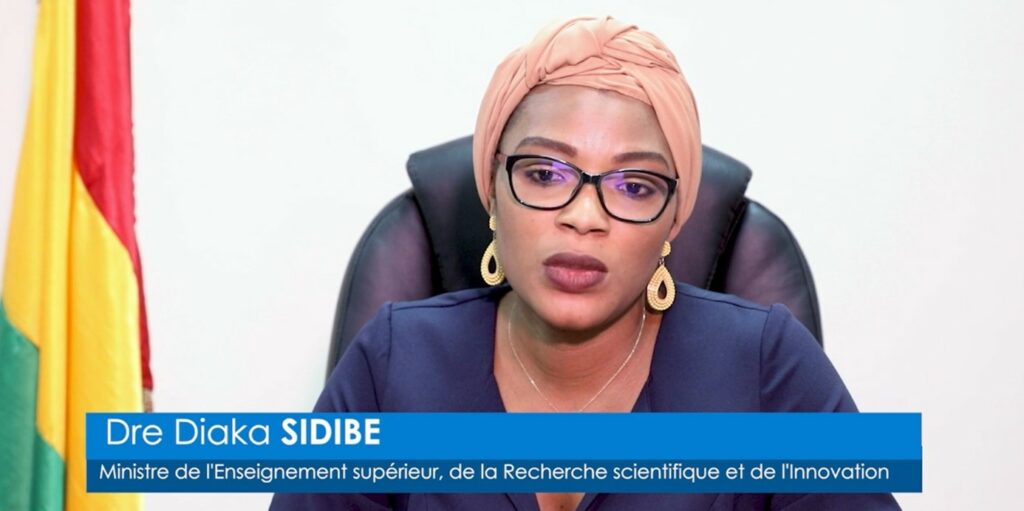
The importance of addressing questions of transboundary water, however contentious they might be, was also underlined by Pascal Delisle, Head, Economic, Development, Environment and Digital Issues, European External Action Service (EAES), Geneva.
The European External Action Service has thus made this one of its priorities in preparation of the 2023 UN Water Conference.
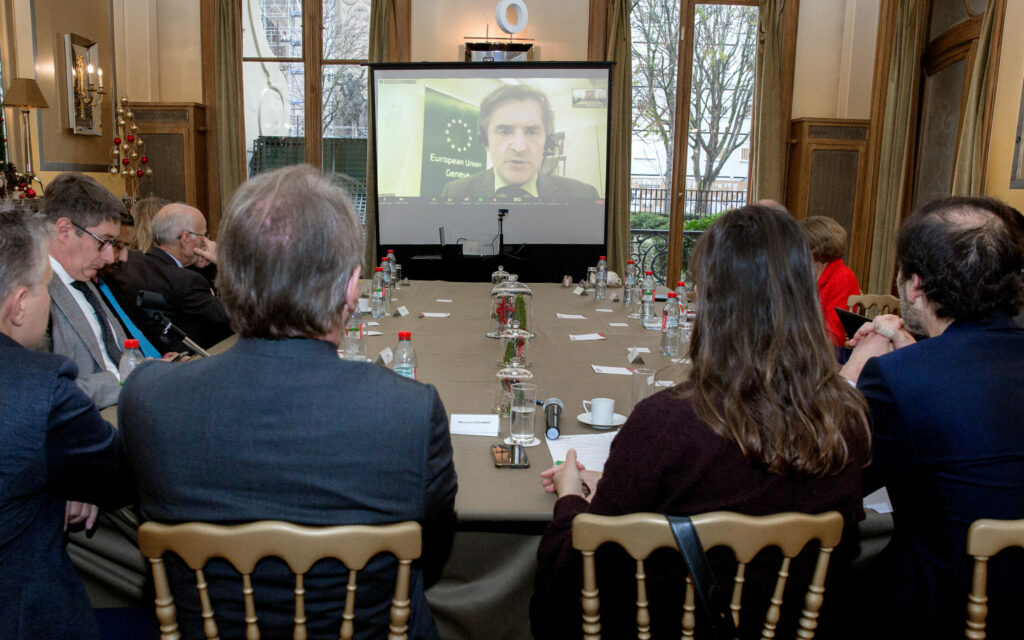
“It has been important for the European External Action Service to be pushing politically for transboundary water to be a priority topic at the 2023 UN Water Conference.”
Pascal Delisle, Head, Economic, Development, Environment and Digital Issues, European External Action Service (EAES), Geneva
But what actually determines the effectiveness of the existing tools and mechanisms of hydro-diplomacy and water management? How can these be best applied?
These were some of the key questions addressed during the conference by Susanne Schmeier, Associate Professor, Water Law and Diplomacy, Institute for Water Education (IHE), Delft. Sharing her expertise in the field, Susanne Schmeier pointed to the importance of questioning the effectiveness of these mechanisms and tools, something she described as “sharpening the tools.”
This is all the more important to precisely assess what is functioning and what is not in terms of hydro-diplomacy, tools, and notification processes.
“We need to sharpen the tools that we have in water diplomacy, moving beyond the mere assumption that having a treaty, a river basin organisation or a notification process is enough, in order to really enable these mechanisms to deal with all the changes ahead.”
Susanne Schmeier, Associate Professor, Water Law and Diplomacy, Institute for Water Education (IHE), Delft
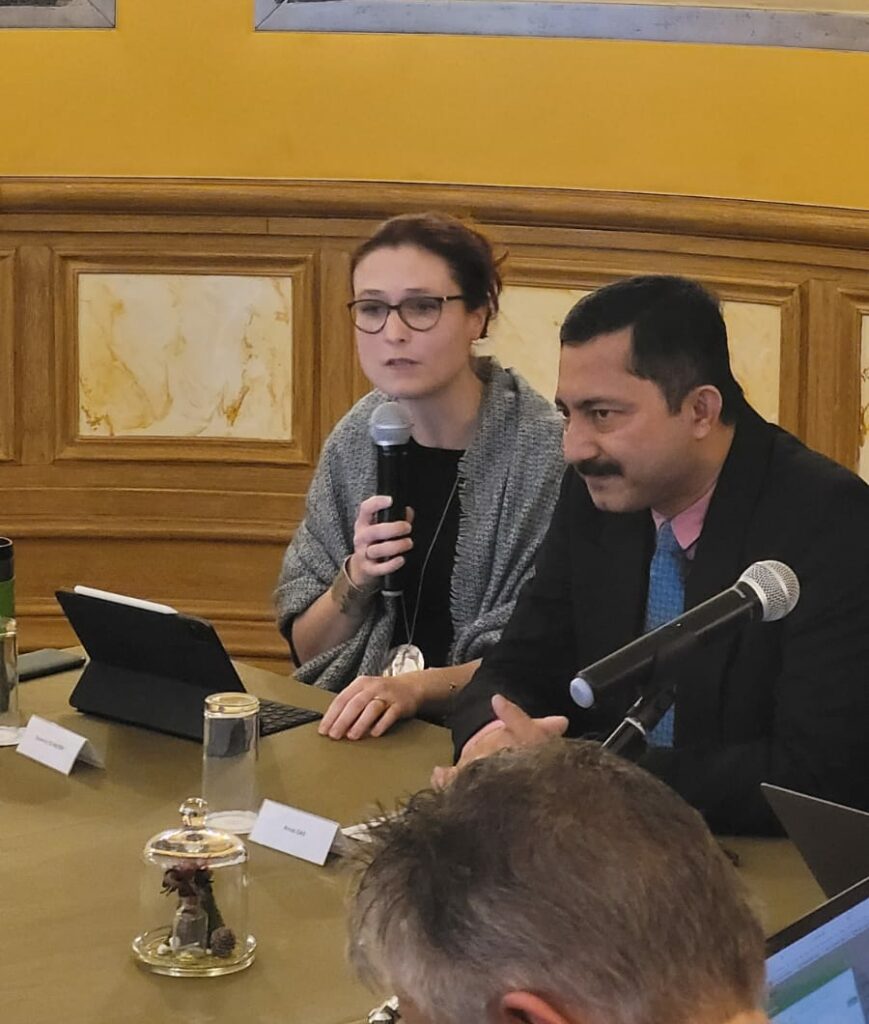
Mara Tignino, Lead Legal Specialist, Geneva Water Hub, and Christian Brethaut, Scientific Director, Geneva Water Hub (GWH), Global Observatory for Water and Peace (GOWP), shared their knowledge and the expertise of the Geneva Water Hub with the other panelists.
Summarising some of the important conclusions of the thematic session he moderated on “Innovative tools for a revisited hydro-diplomacy,” Mr Brethaut noted that when “talking about the tools themselves, the simple process of implementing the tools can already lead to trust building. It is then also a lot about focussing on the process, rather than seeing the tools as a means for itself.”
Ms Tignino introduced one of those possible innovative ideas and tools for hydro-diplomacy with the perspective of the rights of nature and the process of attributing a legal personality to a river, presenting both national and international trends. Ms Tignino particularly stressed the importance of involving local communities in this process of attribution.
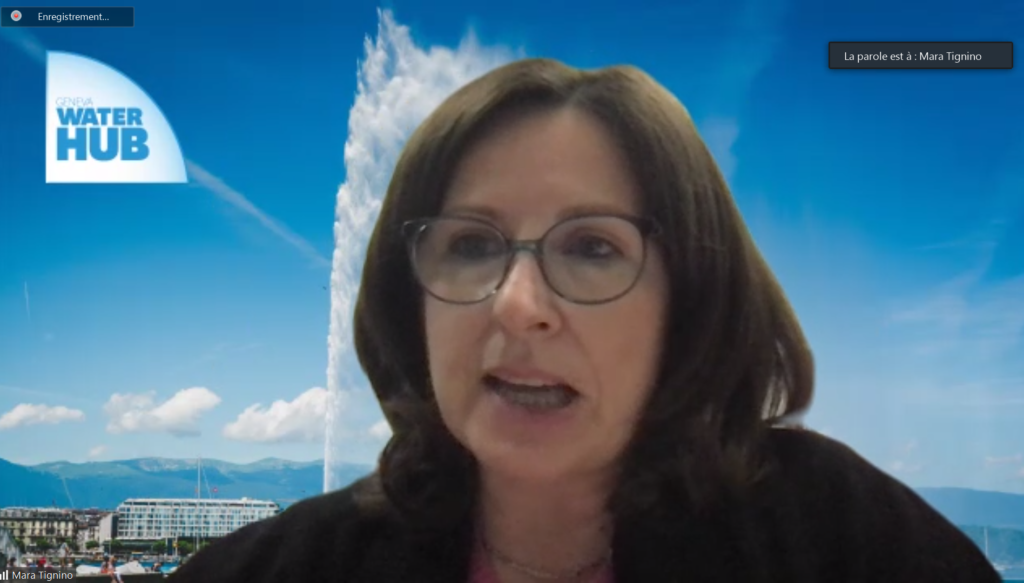
“It is very important that the process of attribution of the legal personality goes through a community level process. It is very important to involve the local community.”
Mara Tignino, Lead Legal Specialist, Geneva Water Hub
The stakes are high to take action to ensure the preservation and sustainability of water resources. Mats Karlsson, Former World Bank Vice President & Former State Secretary for development, Ministry for Foreign Affairs, Sweden, reminded the panel of the centrality of water in the development of future generations, saying that:
“There is no more important element in early childhood development than clean water. And there is no investment that has greater long term impact than investment in early childhood development.”
“There is no more important element in early childhood development than clean water. And there is no investment that has greater long term impact than investment in early childhood development.”
Mats Karlsson, Former World Bank Vice President & Former State Secretary for development, Ministry for Foreign Affairs, Sweden
